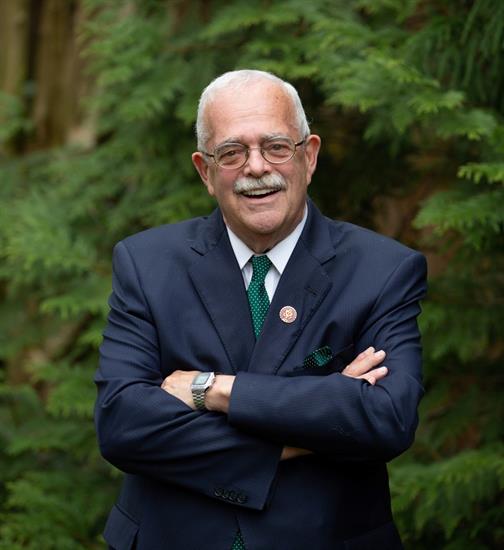Equipping Our Black Students for Battle Inside Prince William County Classrooms
by Jennifer Roberts
A school seems like an odd place for students to have to do battle. After all, school should be a place that is emotionally safe for students. But for some of Prince William County’s Schools Black students, this is not the reality. Instead of their schools being welcoming, supportive environments, some students feel marginalized, not by some elusive, outside source but by the teachers and administrators who are being paid to provide them with a quality education.
Some Black, Prince William County students have described their learning environments as “oppressive,” sharing that some teachers lord their power over them. Other students have said that they feel “targeted” by their teachers. While other students recognize that something is wrong but don’t necessarily have the language to describe their experience. This is an unacceptable learning environment.
Some parents have taken safety measures into their own hands to protect their students. Instead of subjecting their students to these unconscionable circumstances, some Prince William County Schools parents have opted to transfer their students to other PWC schools or withdraw them altogether choosing to send them to private school or homeschool them.
But what about parents and guardians, who want their students to remain at their local, public school or who don’t have another option? What about the students who enjoy going to school but don’t want the unjust environment?
ust like we equip our children with school supplies, backpacks and lunch boxes, we, as parents, must prepare our students to stand firm against educators who are harming them emotionally in Prince William County Schools.
Our society teaches us that educators are good and that we should revere them. At the height of the pandemic, we saw ads and signs everywhere reminding of us of the importance of teachers. And when parents became teachers and learning facilitators, many people saw firsthand the challenges of teaching. The truth is that some teachers are good and some are not. Some should be in the Teacher’s Hall of Fame while others should not be allowed the privilege of working with students at all. In the same way that we do not put all students in one category, we cannot paint all educators with a broad brush. This is a hard truth that most people don’t see, and others know to be true but will never publicly admit.
In an ideal, educational environment, students would be able to attend school in a reassuring environment devoid of implicit bias, discrimination, racism or simply a frustrated teacher. They would be able to show up as themselves and not feel oppressed or targeted. Even though we don’t live in a utopia, it is possible for our students to have a more equitable educational experience if educators are held accountable for the way that they treat Black students and if Black students had an effective way to safely advocate for themselves in school. Prince William County Schools is not interested in being proactive about protecting our students, so we must choose to be proactive in preparing them.
I advise parents to discuss these strategies at home and role play with their students. Parents must let students know that they have the right to go to school in an emotionally safe environment and when they feel threatened they have the right to advocate for themselves. Parents should share with their student’s teacher and administrator that their student has permission to access any of these strategies during the school day.
Disengage: A student’s classroom should be a safe space but far too often, it is the scene of harmful, emotional interactions with teachers and peers. When students feel like they are emotionally unsafe because of something that is being said or done to them or in their presence, they should ask the teacher or adult on duty for permission to take a break. Some teachers have designated areas inside the classroom where students can decompress and regroup. If this is not an option or if a student needs a different resource, students can ask for permission to take a walk or visit with their counselor or another trusted adult in the school building.
Call: Sometimes a student doesn’t have a trusted adult in the building that he or she can easily access because a relationship hasn’t been built, schedules or the issue is one that that needs to be addressed by a parent/guardian or trusted adult outside of the building. Students can ask permission to go to the office to call their trusted adult. Sometimes a reassuring phone conversation is all that is needed in the moment while other times the adult may need to visit the school to make sure that all is well.
Report: A student can have an adverse experience with a staff member or peer at anytime during the day. Sometimes, by the time students get home, they have forgotten what happened at 9:25 that morning. It is very important however to ask your student about his or her interactions during the day so that adverse interactions can be responded to as quickly as possible. Parents should ask their students very specific questions like, “How did you feel at school today?” “How did your teachers interact with you today?” “Did your teacher greet you today?” “Who did you sit with at lunch today?” “Did anything unusual happen today?” “Did you feel safe at school today?” These questions can reassure students that their parents are interested in their experience (not just their grades) and help jar a student’ memory about an issue that needs to be addressed.
Document: It is vital that students and parents keep accurate records of emails, experiences, requests, action plans, interactions and conversations between teachers and students and between parents and staff members. Not only does documentation provide a written record historical record; it helps to identify patterns of behavior that may be missed or minimized in the absence of documentation.
Our students have a responsibility to show up ready to learn each day at school. Division educators have an obligation to provide each of its students with a free and appropriate education. It disturbs me deeply that we must go to such lengths as parents in order to get our students the education they deserve but if this is what it takes, this is what we will do.



